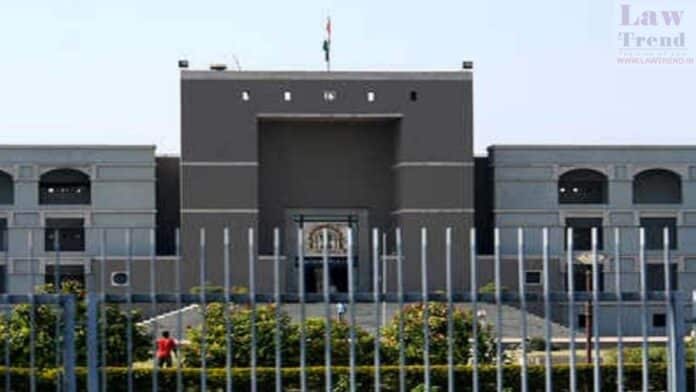The Gujarat High Court has asked all courts in the state to scrupulously follow the directions of the Supreme Court regarding the disposal of bail applications within two weeks and anticipatory bail pleas within six weeks.
The bench of Chief Justice Sunita Agarwal and Justice Anuruddha Mayee on Monday passed the order in a petition filed by one Bhavesh Rabari against the practice of adjournment of bail pleas for several weeks.
An administrative decision has been taken to do away with the litigation stage of admitting bail applications, the court said.

It is worth noting here in the bail matter of social activist Teesta Setalvad in a case of fabricating evidence in the 2002 Gujarat riots cases, the Supreme Court had questioned the Gujarat High Court about the adjournment of her plea for more than six weeks.
The high court, in its order, said the procedure for the disposal of bail applications must be followed scrupulously as per the law laid down by the apex court in the case of Satyendra Antil.
The Supreme Court had mandated that bail applications must be disposed of within two weeks and applications of anticipatory bail within six weeks, subject to exceptions such as intervening applications or special provisions mandating otherwise, the order stated.
The bench further said that the “issuance of rule” practice of admitting bail pleas and then adjourning the same for a final hearing for weeks without going into the merits of the case on the same date needs to be curbed.
The court said that in a meeting between the chief justice, advocate general and public prosecutor on the administrative side during the hearing of the matter, it was decided that the office of public prosecutor will not insist on the issuance of rules in bail matters.
“We have also been informed that the practice of issuance of rule that continued in this court for a long time has been done away with,” it said.
Since the courts hearing bail applications have now stopped issuing rules, the bench does not find any reason to issue any direction or guidelines in the matter and only deems it fit and proper to record that “the bail applications are to be dealt with by every court as per the law of the land”, it said.
The high court further observed that there may be cases in which it finds it proper to entertain an application without the applicant having moved the sessions courts initially or where it may feel justified in asking the applicant to move the sessions court or refer the matter to that court.
Also Read
“In any case, all depends upon the discretion of the judge hearing the case. It must be left to the judge to exercise the discretion vested in him by the statute depending upon the face of the particular case,” the court said.
It is open for the learned judge to assess the facts of each case to form an opinion on whether special circumstances existed for not entitling the applicant to approach the high court directly, it added.
“However, we find it just and proper to add a word of caution that any routine practice of relegating the applicant to approach the court of sessions where the chargesheet is filed during the pendency of the bail application before the high court has not got our seal of approval with what we have stated above,” it said.
The bench said it would be open for the public prosecutor to argue before the high court that since the chargesheet is filed during the pendency of the bail application, the applicant has no option but to approach the sessions court.
“It is the choice of the applicant to lose a chance to approach the trial court because otherwise, the applicant has two chances first to approach the sessions court and then the high court,” it said.







